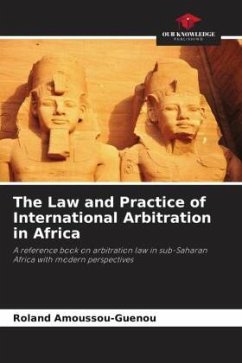Born of the needs of commerce, arbitration in its modern form began to play an important role in economic exchange in the late 19th century, under the influence of merchants and the judiciary in England.Gradually, with the expansion of international trade, the concept of contractual justice, distinct from state justice, began to spread in business circles.Thus, the so-called "arbitration clause", which provides that the disputing parties undertake to have recourse to arbitration, i.e. to the wisdom of judges who are simple private individuals whose only title is to be appointed by them, became established. Until the early 1990s, no comprehensive study was available on the law and practice of arbitration in Sub-Saharan Africa. The author has taken a pioneering approach due to the geographical scope and the difficulties caused by the diverse influences of French law, common law and Islamic law in the countries concerned. It is a reference work, which has been able to fill the scientific and doctrinal void on arbitration in sub-Saharan Africa with modern perspectives.
Bitte wählen Sie Ihr Anliegen aus.
Rechnungen
Retourenschein anfordern
Bestellstatus
Storno








